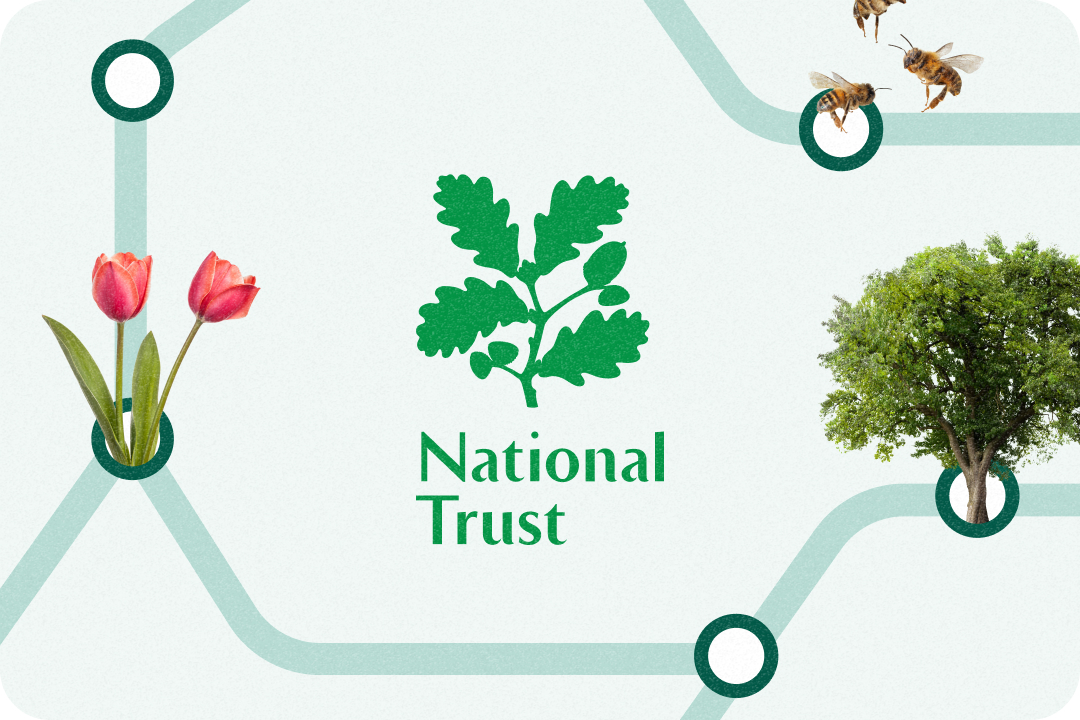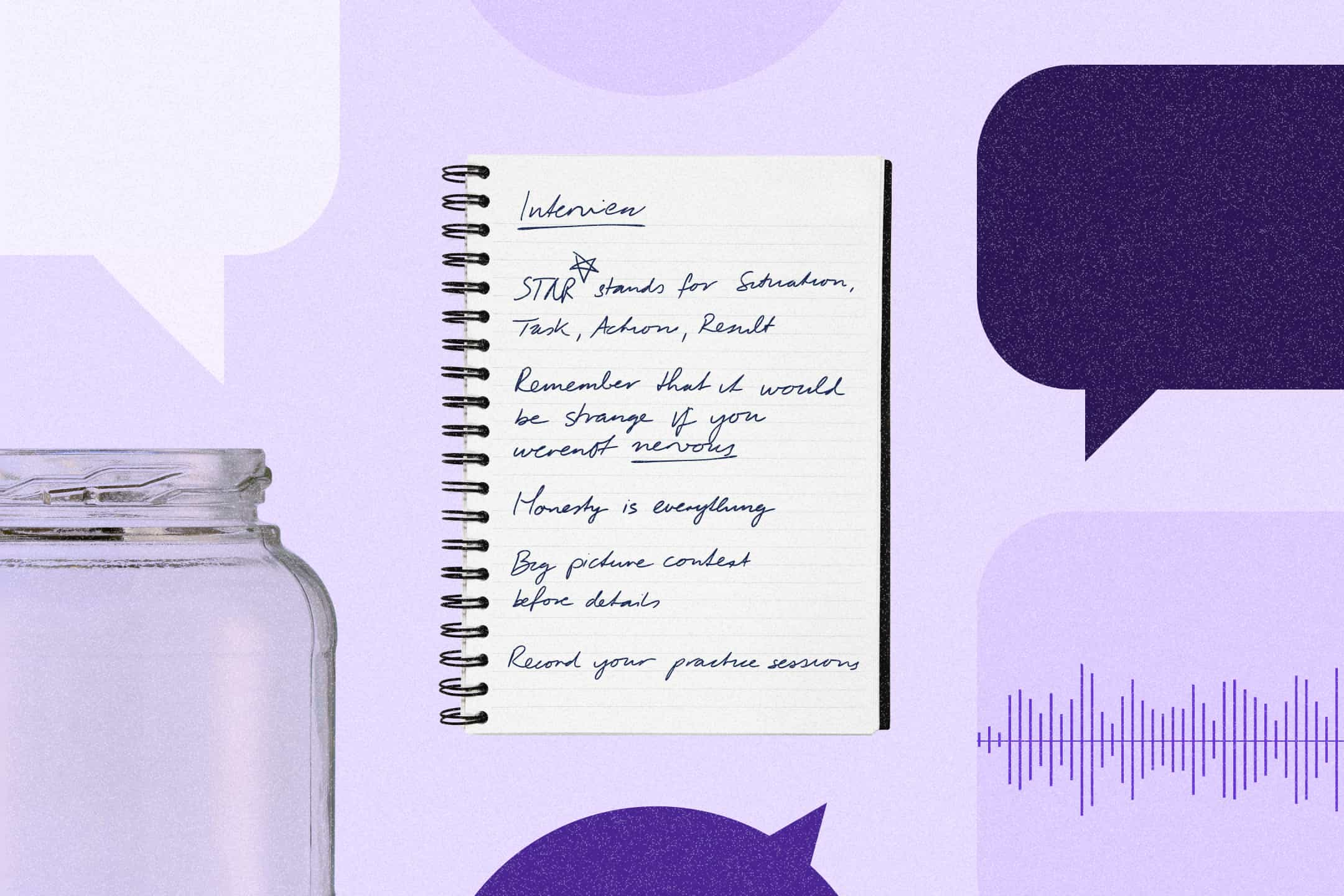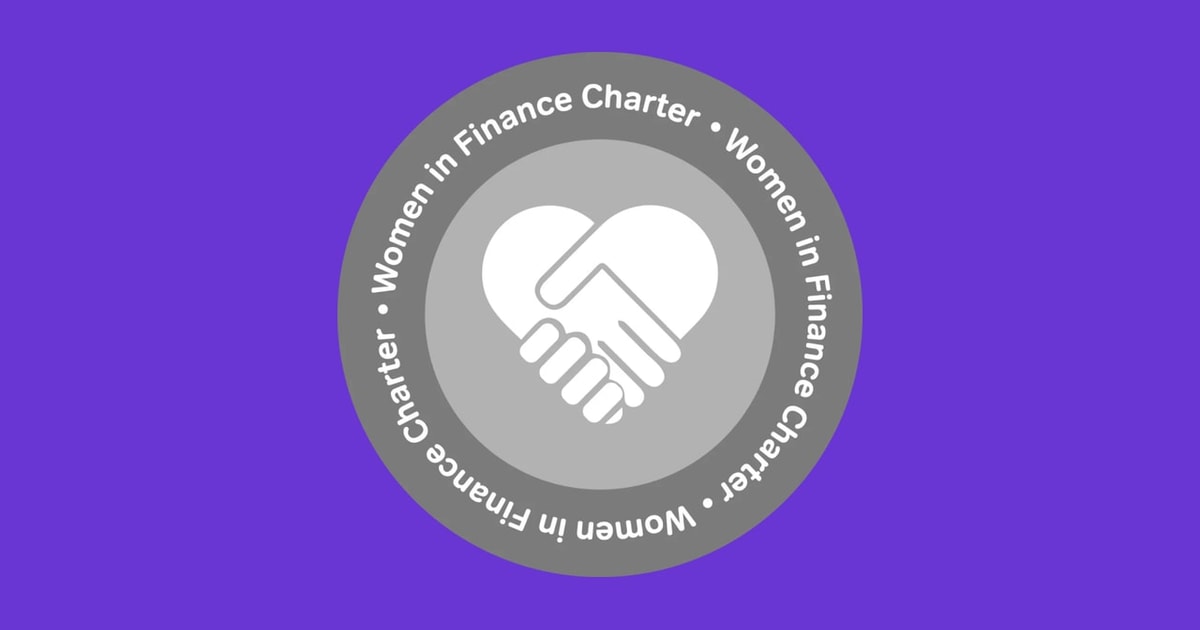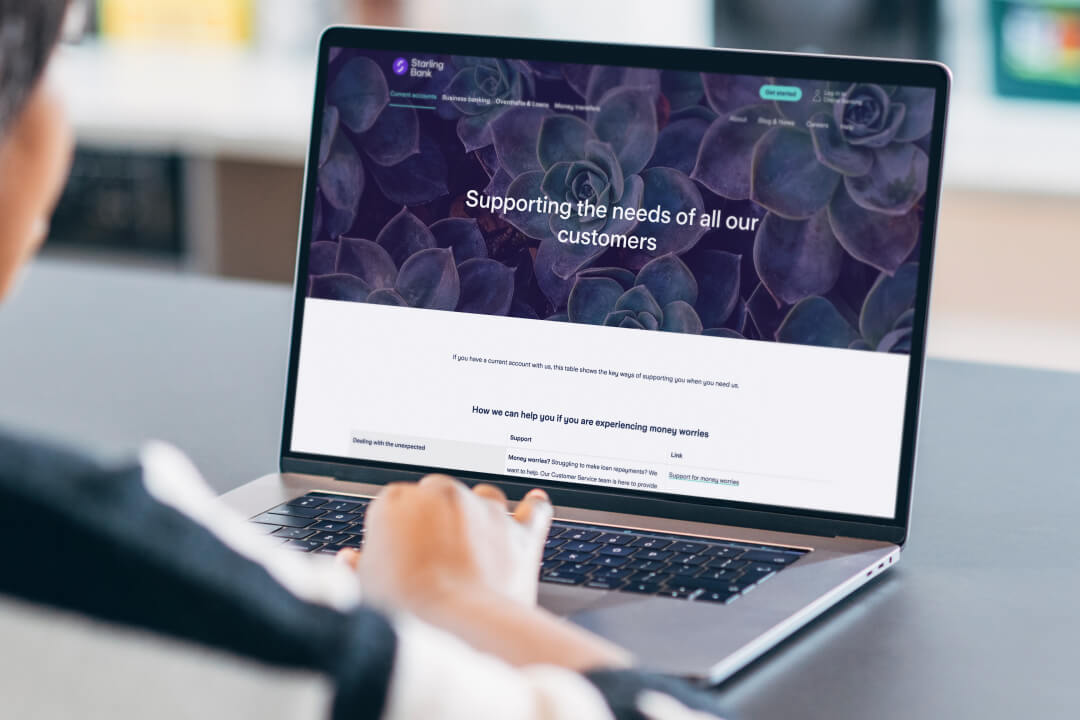
Life at Starling
National Trust in London: four sites for city dwellers
By Esmeralda Dyer Bray
Interview tips

What we earn and how we earn it makes up a huge part of our lives. But changing roles or how you work can be daunting. This is especially true if you’ve had a gap between jobs to care for young children or family members, or haven’t done an interview for a few years.
To help you, we’ve gathered tips from Starling colleagues who regularly conduct job interviews, and Smart Works coaches, trained to help women prepare for an upcoming interview.
We work with Smart Works, one of our charity partners, to help women secure work by improving their confidence through coaching and a workwear consultation. By the end of their appointment, they’ll be equipped with practical interview guidance and a high-quality outfit for their interview (which they can keep). If they land the job, which 63% do within one month of being referred, they’ll be given further items to build a capsule work wardrobe.
Smart Works is on track to support 10,000 unemployed women a year; 95% leave feeling more confident. Keen to know how they do it? Read on.
For many people, “the biggest challenge is their tendency to undersell themselves,” says Dr Keith Miller, Smart Works coach and retired Director of Psychology Services. “So in the coaching session, I try to help them see their transferable skills – or strengths.
“For example, one client had applied to be the manager of a baby bank (the equivalent of a food bank for nappies, toys etc.) and had previously worked as a teaching assistant. She was organised, good with people and could cope with lots going on at once. It didn’t matter that she’d never worked in the baby bank network before.”
Keith’s example ties into the way Smart Works coach Catherine Serusclat differentiates between skills and strengths: “A skill is something you’re good at but may drain you, while a strength is something you enjoy that brings you energy.”
To help you identify your strengths ahead of an interview, Catherine recommends using the free tool Strengths Profile. “Strengths are long-lasting, transferable and often easier to identify than skills if you haven’t been in the workplace for long or had a gap between jobs. They often relate to what you like doing outside the workplace, for example being creative or organising events in your friendship group.”
Another free tool you could use to identify strengths is the NHS Careers Quiz, which Keith recommends. Even if healthcare isn’t the industry you’d like to work in, the way the quiz generates a list of jobs that match your preferences could help you talk about your strengths in an interview, for example being compassionate or detail-oriented.
“In a lot of cases, clients will have the skills and the experience, and it’s the way they deliver their answer that counts,” says Smart Works coach Kayte McLean. This is why she urges people to record themselves when practicing for an interview.
“It’s excruciating listening to yourself back – no one likes it but it’s so useful. People often don’t realise what their cadence is when they speak, or if they’re repeating the same words, or going off on a tangent and taking six minutes to give an answer – which is where the STAR method can help.”
STAR stands for Situation, Task, Action, Result – a four point plan to structure your answer to standard interview questions, such as:
Tell us about a challenge you’ve been able to overcome.
Give us an example of a time when you motivated a colleague.
Tell us about the work environment that suits you best – how do you like to work?
“Find a co-operative friend or family member and set aside some time to practice answering questions, most of which are reasonably easy to predict. For example, ‘Why do you want this job?’. Just a couple of short practice sessions like this can make you feel much better prepared and therefore less anxious when you come to the interview itself.”
“Remember that it would be strange if you weren’t nervous – and that the interview isn’t a memory test. You can bring a notebook in with you and refer to it. All that shows is that you’re prepared and organised.” - Dr Keith Miller, Smart Works coach and retired Director of Psychology Services
“Find something that grounds you. For podcaster Alastair Campbell, this is rubbing his fingers together. For former footballer Ian Wright, it’s holding a piece of plastic he keeps in his pocket. One fellow coach recommended clasping your hands in your lap – it makes you sit up straighter and feel much more stable. I use it all the time in board meetings.” - Kayte McLean, Consultant and Smart Works coach and dresser
“Remember that you’re the expert on your experience. Only you know how to answer questions about what you enjoyed about a certain job or why you want to work somewhere new.” - Sarah MacNeill, Software Engineer at Starling and Outstanding Women in Tech Winner 2024
“Get there early and take some time to come down from your commute. Write key things in a notebook that you can read while you’re waiting – examples you want to talk about, points you want to get across, information about the company etc.” - Catherine Serusclat, Smart Works coach and Career Coach at People at Heart Coaching
“Reframe it. You’re interviewing them as much as they’re interviewing you. You need to know whether it’s the right organisation for you – it’s a two-way street.” - Bernadette Smith, Chief Compliance Officer at Starling
When preparing for an interview, it’s natural to prioritise researching the company or practicing answers. But Kayte favours a broader approach, based on Dr Jehannine Austin’s idea of your ‘mental health jam jar’ (Alastair Campbell is a fan). We all have genetic vulnerabilities and everyday stressors in our jam jar, but we can expand our jar to make sure it doesn’t overflow by doing things that keep us happy and positive.
“Instead of spending six hours preparing reams of notes, spend two hours on notes and four hours on expanding your jam jar so that when you come to your interview, you’re not wound up in knots. There’s a trickle down effect to feeling generally happier that will show when you meet someone, including your interviewer.”
Sarah MacNeill, a software engineer at Starling, confirmed this: “I interviewed someone this morning who really stood out. The conversation flowed from the start – they were relaxed and easy to talk to.”
The other thing that made Sarah’s interviewee stand out was the way they explained things. “As the interviewer, I often need some big picture context so that I can understand the value of the details you want to talk about. They explained that high-level context really well, which helped me ask follow-up questions.”
For Bernadette Smith, Starling’s Chief Compliance Officer, it’s authenticity that makes a candidate stand out. “I love it when someone admits that they don’t know the answer to something or checks they’ve understood before answering. Pretending that you know everything or have experience in everything isn’t authentic – and it’s authenticity that I’m looking for. I also really like it when someone talks about a mistake they’ve made and what they’ve learned from it.”
Catherine added: “A lot of women that come to Smart Works have a gap or a few gaps in their CV, which often leads to a lack of confidence. But it’s so important to be honest about that gap and to be yourself. If you mask who you are, you may get the job only to discover you don’t gel with the team because you hid your personality in the interview.”
You could even be honest about how nervous you are. “Whenever someone does this, it gives me an insight into who they are and shows that they’re comfortable being honest, even in an uncomfortable, formal interview,” says Bernadette.
“Building a connection with your interviewer is the most important thing – let who you are shine through and take your time. Find a cue to help you remember to slow down, such as clasping your hands in your lap and squeezing them together when you notice yourself speaking too fast.”
Ready? Here’s what Catherine loves her clients to ask at the end of an interview: “Do you have any concerns about my application?”
Why? “It puts your interviewer on the spot. But also allows you to address whatever they say. And helps you know where you stand if they say you’re missing a year or two of experience. People often spend weeks or months applying for jobs without getting any feedback – which is heartbreaking – so asking this question means you may be able to get some at the interview stage.” It’s brave – perhaps scary – but they’ll remember your bold approach.
Interested in bringing your experience to Starling?
Explore careers
Life at Starling
By Esmeralda Dyer Bray

Sustainability at Starling
By Starling Writing Team

Life at Starling
By Charlotte Lorimer

Team Starling
By Team Starling
We have to use certain cookies to run the website. There are other optional cookies that show us how the site’s used, let us improve the experience you get, and help us with our marketing.
These optional cookies won’t be used unless you click ‘Accept’. To manage your cookie settings, click the link at the bottom of any page on our site. Find out more in our cookie policy.